1. Honesty and Integrity
Every employee of the company, regardless of their location, must handle issues with honesty and integrity, without any compromise. There is no difference between business ethics and personal ethics — both require the highest standards of conduct. As employees of the company, they must adhere to the highest ethical standards, regardless of local customs or practices.
When dealing with colleagues, customers, suppliers, and third parties, employees must follow principles of honesty and ethics. The company does not engage in illegal alliances with other enterprises and strictly prohibits any form of deception towards customers or society. This includes, but is not limited to, forming industry alliances to manipulate material prices.
2. Fair Trade and Anti-Bribery
The company's business conduct is based on the principle of "fair trade." Business partners should be informed of the company's code of business ethics. It is explicitly stated that employees are strictly prohibited from accepting kickbacks, commissions, or any other forms of illegal payments from customers or suppliers. Likewise, employees must not offer bribes to individuals with whom the company conducts business. Any violations will be dealt with in accordance with legal procedures.
3. Promotion of Ethical Awareness
The company maintains regular communication with employees regarding professional ethics. The goal is to strengthen employees' sense of dedication, honesty, fairness, public service, and social responsibility.
4. Conflict of Interest Disclosure
Employees must fully disclose any situation that may result in a conflict of interest. If an employee identifies a potential or perceived conflict of interest, they must immediately report it to their supervisor.
Principles for Handling Stakeholder Relationships
"Stakeholder relationships" refer to the interactions employees have with customers, business partners, competitors, regulators, and other employees. Employees are expected to treat all stakeholders fairly and uphold principles of equality and impartiality.
5. Protection of Company Assets
Employees must protect the company's assets and ensure that they are used efficiently and solely for legitimate business purposes. Misuse, negligence, and waste of company resources are strictly prohibited. No company property or resources should be used for personal gain or any unauthorized purpose.
6. Intellectual Property and Confidentiality
All inventions, creative works, software, technologies, or trade secrets developed by employees in the course of their duties or through the use of company resources are considered the property of the company. The company enforces a strict confidentiality policy. Any information obtained from clients, suppliers, or other third parties during the course of business must be kept confidential.
During their employment, employees must adhere to both written and unwritten confidentiality rules and policies and fulfill their confidentiality obligations and responsibilities.
7. Fair Competition
The company seeks to outperform its competitors fairly and honestly. It strives to achieve a competitive advantage through superior performance, not through unethical or illegal business practices.
The following actions are strictly prohibited:
Theft of proprietary information
Handling of trade secrets obtained without the owner’s consent
Inducing current or former employees of other companies to disclose confidential information
All employees are expected to respect and deal fairly with customers, suppliers, competitors, and fellow employees. No employee may obtain an unfair advantage by manipulating, concealing, or misusing privileged information, misrepresenting material facts, or engaging in other illegal trade practices.
8. Whistleblowing and Protection of Whistleblowers
All employees have the right to report unethical behavior to the company's senior management. The company is committed to protecting the identity of whistleblowers and may offer appropriate rewards for such reports.

 Fiber Optic Flex Circuit (FOFC)
Advanced Simulation & Optimization, High Positioning Accuracy, Flexible Customization, Rigorous Reliability Testing
Fiber Optic Flex Circuit (FOFC)
Advanced Simulation & Optimization, High Positioning Accuracy, Flexible Customization, Rigorous Reliability Testing MDC Solution
US Conec's MDC connector is a Very Small Form Factor (VSFF) duplex optical connector, expertly designed for terminating single-mode and multimode fiber cables with diameters up to 2.0mm.
MDC Solution
US Conec's MDC connector is a Very Small Form Factor (VSFF) duplex optical connector, expertly designed for terminating single-mode and multimode fiber cables with diameters up to 2.0mm. MMC Solution
US Conec's Very Small Form Factor (VSFF) multi-fiber optical connector that redefines high-density connectivity with its cutting-edge TMT ferrule technology and intuitive Direct-Conec™ push-pull boot design.
MMC Solution
US Conec's Very Small Form Factor (VSFF) multi-fiber optical connector that redefines high-density connectivity with its cutting-edge TMT ferrule technology and intuitive Direct-Conec™ push-pull boot design. EN
EN
 jp
jp  fr
fr  es
es  it
it  ru
ru  pt
pt  ar
ar  el
el  nl
nl 
